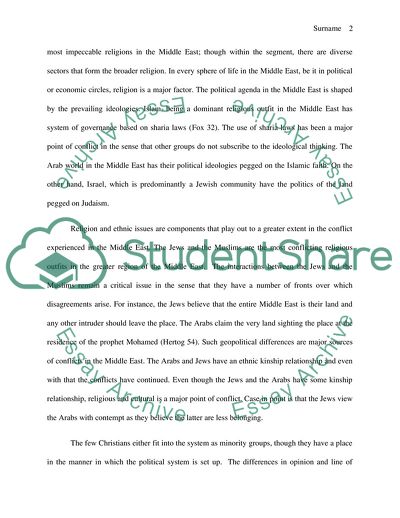Cite this document
(Impact of Religion on Conflicts in the Middle East Essay Example | Topics and Well Written Essays - 2250 words, n.d.)
Impact of Religion on Conflicts in the Middle East Essay Example | Topics and Well Written Essays - 2250 words. https://studentshare.org/religion-and-theology/1843546-are-middle-east-conflicts-more-religious
Impact of Religion on Conflicts in the Middle East Essay Example | Topics and Well Written Essays - 2250 words. https://studentshare.org/religion-and-theology/1843546-are-middle-east-conflicts-more-religious
(Impact of Religion on Conflicts in the Middle East Essay Example | Topics and Well Written Essays - 2250 Words)
Impact of Religion on Conflicts in the Middle East Essay Example | Topics and Well Written Essays - 2250 Words. https://studentshare.org/religion-and-theology/1843546-are-middle-east-conflicts-more-religious.
Impact of Religion on Conflicts in the Middle East Essay Example | Topics and Well Written Essays - 2250 Words. https://studentshare.org/religion-and-theology/1843546-are-middle-east-conflicts-more-religious.
“Impact of Religion on Conflicts in the Middle East Essay Example | Topics and Well Written Essays - 2250 Words”. https://studentshare.org/religion-and-theology/1843546-are-middle-east-conflicts-more-religious.


